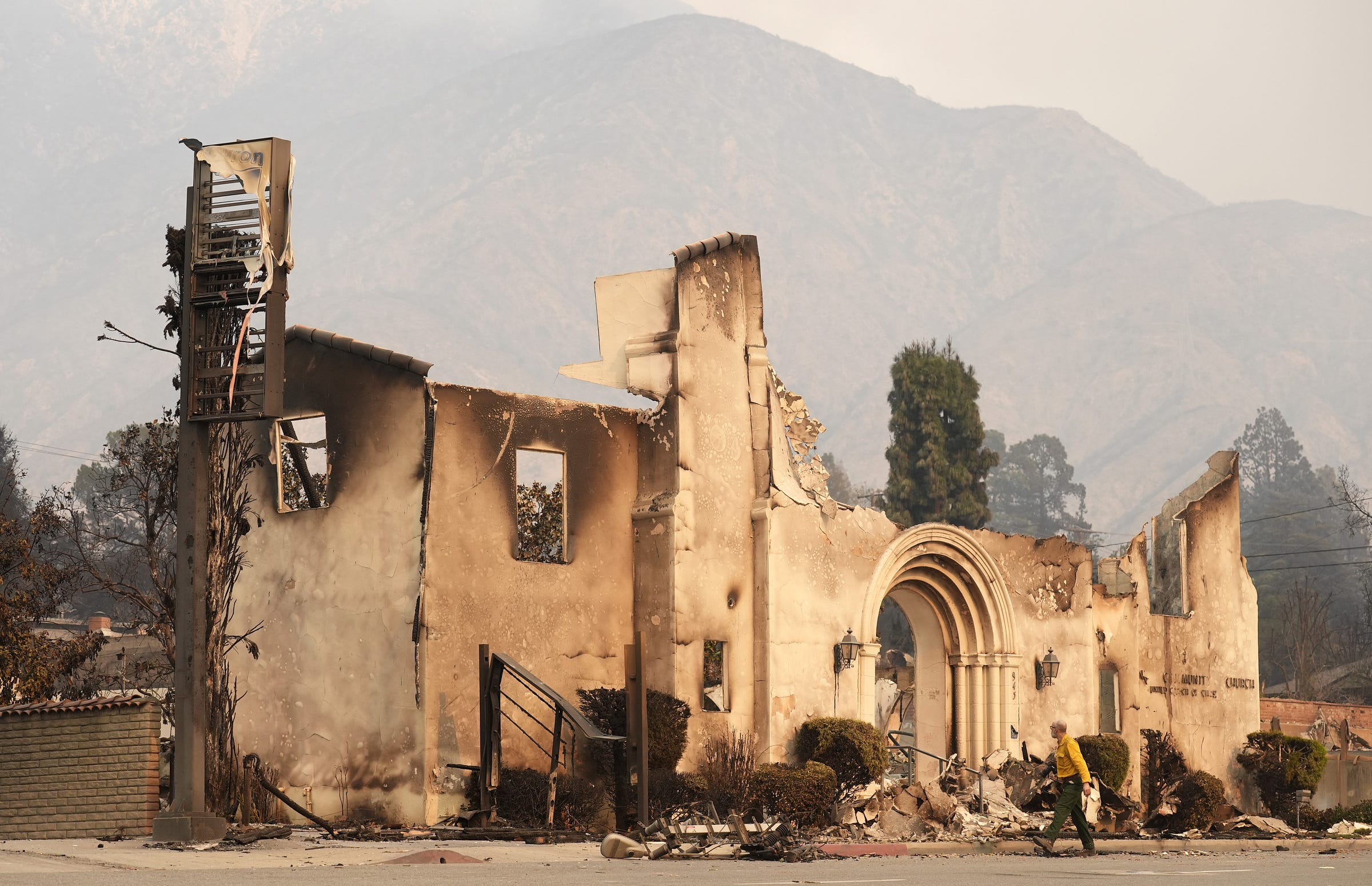Word&Way News: Jan. 10
Here’s the weekly roundup from Word&Way. In addition to a breaking news story and a follow-up historical investigation on a so-called “Jefferson prayer” that were free for anyone to read, paid subscribers to A Public Witness received a look at how U.S. denominations supported and then opposed U.S. control of the Panama Canal.
Support our journalism ministry by upgrading to a paid e-newsletter subscription today!
Top 5 at wordandway.org
What Kind of Baptist Was Jimmy Carter? Brian Kaylor reflected on what has been missing in coverage of the religious faith of the late president.
Jimmy Carter’s D.C. Church Honors Him With Special Service. Jeremy Fuzy reported on a special service at First Baptist Church of the City of Washington, D.C., where Carter taught Sunday School while president.
‘Faith in Democracy’ Interfaith Vigil Marks Jan. 6 Insurrection. Jeremy Fuzy reported on a gathering at a Lutheran church in Washington, D.C., on the eve of the fourth anniversary of the Capitol insurrection.
Review: John of History, Baptist of Faith. Robert D. Cornwall reviewed John of History, Baptist of Faith: The Quest for the Historical Baptizer by James F. McGrath.
At Turning Point USA’s AmFest, Charlie Kirk Takes a Victory Lap for Trump Election. Katherine Stewart wrote about a recent event by a key group pushing Christian Nationalism.
by Brian Kaylor, Word&Way Editor-in-Chief
This was a week of contrasts. It started with faith leaders recalling and again denouncing the violence and lies four years ago during the Capitol insurrection. Then that anniversary saw the peaceful certification of the one who tried last time to overturn a free and fair election he lost. This year, some lawmakers who tried to stop certification of the election four years ago now talked about the importance of not letting anything delay certification (like snow or gridlock if they failed to elect a House speaker).
Then, people waited in line in the cold outside the Capitol for hours to pay respects to the late Jimmy Carter, whose funeral yesterday highlighted his character and faith. President Joe Biden said that “today, many think [Carter] was from a bygone era, but in reality, he saw well into the future.” Biden was making a point about Carter being ahead of his time on civil rights, peace in a nuclear age, and environmental issues.
The idea of a bygone era seems to fit as we look at the nature of politics today. After all, this morning, President-elect Donald Trump was formally sentenced in the New York case where he was convicted on 34 felony counts for falsifying business documents to cover up his hush money payments to a porn star he had an affair with. This finalizes the conviction, meaning he’ll soon be the first convicted felon to take the presidential oath of office.
But that’s not quite a bygone era. After all, Carter’s rise came in the aftermath of the Watergate scandal that took down President Richard Nixon. And Carter was followed by administrations embroiled in the Iran-Contra Affair, the savings and loan scandal with the Keating Five, Whitewater and Lewinsky, false claims of WMDs in Iraq, and much more. Carter’s character does feel like an indictment of today’s politicians. But he wasn’t from a bygone era as much as an outlier. It remains to be seen if he was a taste of a better future.
Other News of Note
Stephanie McCrummen of The Atlantic wrote about the New Apostolic Reformation and how the charismatic movement is reacting to Trump’s victory.
The Chattanooga Times Free Press examined the religious makeup of the Tennessee General Assembly, finding it skews even more Christian than the U.S. Congress.
As online sports betting grows in Brazil, pastors there are trying to warn against the addictive activity.
“The church has aligned itself with the side of empire because the empire is the only political side that denies it’s a genocide. And the church, by continuing to ignore or to not use the language of genocide, has sided with power.” —Rev. Munther Isaac, pastor of Evangelical Lutheran Christmas Church in Bethlehem, in an interview with Sojourners.
A man who burned down an Episcopal and a Presbyterian church in Arizona because they affirmed women and LGBTQ individuals was sentenced to more than 36 years in federal prison.
Boston College is suing to enforce a deal it made to buy historic stained-glass windows from the defunct St. Stanislaus Seminary in St. Louis, Missouri.
A legal dispute between Southern Methodist University and the United Methodist Church over control of the school in Texas is heading to the state’s Supreme Court next week.
Alyson Krueger of the New York Times profiled a Lutheran pastor in New York working to keep struggling churches open.
Obit: Richard Hayes, an influential New Testament scholar.
Photo of the Week

Thanks for reading!







